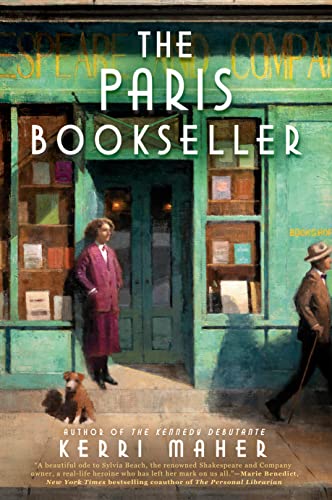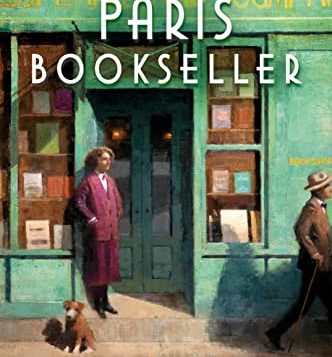 THE PARIS BOOKSELLER
THE PARIS BOOKSELLER
by Kerri Maher
Berkley. 336 pages, $26.
THE PARIS BOOKSELLER is a charming historical novel about Sylvia Beach, founder of Shakespeare and Company, the first English-language bookstore in Paris, and about the stellar cast of characters that frequented the shop on the rue de l’Odéon, which became a salon for the likes of Ernest Hemingway, F. Scott Fitzgerald, and James Joyce. The novel begins with Beach’s return to the city in 1919 and the opening of Shakespeare and Company, and ends in 1936, at a celebration attended by Beach and her many literary friends. Throughout the book, her romantic relationship with Adrienne Monnier is lovingly chronicled.
Monnier is the first person Beach meets in the novel as she wanders around a Paris bookstore that happens to be owned by Monnier herself. Following a lovely conversation about America and literature, the women spend much time together, eventually becoming a couple. Monnier encourages Beach to open Shakespeare and Company. Throughout their time together, Monnier also tries to remind the ever-busy Beach to take care of her own needs first, before helping others. Their relationship is presented as mutually supportive and positive, which seems right based on what we know about their lives. Beach is in awe of Monnier’s many talents, from writing essays and translations to cooking meals from scratch. She sometimes worries that Monnier might be outgrowing her as a partner.
Charles Green is a writer based in Annapolis, Maryland.







